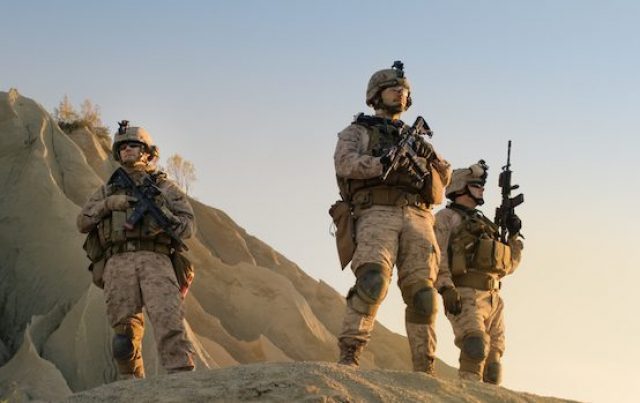Saman Khalid | Mahnoor Kayani
Grievances of war-torn Syrians, like always, are being sidelined in the complex battlefield of Syria where multiple entities, groups, and factions are fighting each other for their ulterior motives. The decision of US President Donald J. Trump on Dec 19, 2018, to withdraw all 2000 US troops from Syria after claiming the victory over ISIS, has clouded the already ambiguous future of Syria. This sudden turn of a new reality has caused anxiety and uncertainty among US allies in Syria, especially Kurdish People’s Protection Units (YPG). It has also offered a great deal of freedom to other actors like Turkey, Iran, and Russia to vigorously pursue their motives. In addition to this, the reemergence of ISIS is also not out of question now. The most important question in this scenario is
“Will this decision bring stability in the region or further aggravate it and who will fill this power vacuum?”
The immediate resignation of US Defence Secretary, James Mattis, following the highly contested decision of Donald J. Trump of withdrawal of US troops, is a clear
indication of unplanned disturbance of power equation in Syria. The power vacuum is posing threats to the merely gained stability in northeast parts of Syria where Turkey
is planning to start a military operation against Kurdish military group – YPG – a local ally of US in its war against ISIS. Turkey is of the view that YPG is an offshoot
of a terrorist organization “PKK” and by having this operation it wants to curb the growing influence of Kurds near its border with Syria to address the issue of greater
Kurdistan. Although US and Turkey are NATO allies it is highly unlikely that Turkey, against all of its assurance to the US to fight ISIS, will be able to contain the
threat of reemergence of ISIS as it clearly lacks the resources and access to fight them in their stronghold of the southern region of Syria. Moreover, its conflict with YPG will also aggravate the grievances of Syrians. Last but not the least, strained relations between Turkey and Trump’s blue eye ally – Saudi Arabia, over the murder of
Jamal Khashoggi will also make Turkey an unfavourable player to fill the vacuum.
To avert the unfortunate looming threat of Turkish army operation in Manjib, YPG is seeking a deal with the government of Bashar al Assad. If this deal goes through
then it will pave the way for Bashar al Assad to expand his authoritarian regime to the resourcefully rich area of Northeast Syria. YPG holds the 30% of Syrian territory
which is rich in natural resources and gas reserves. The active role of Bashar ul Assad in that region of Syria will provide him with extra financial resources to suppress the freedom movements against his draconian rule. As a whole, US allies in Syria will face a crushing defeat in the wake of such a possible outcome.
If Iran will be blessed with the more active role in the region in the aftermath of this whole US troop withdrawal saga, the stained relation of Iran and US will
haunt the peace in the region. Israel’s insecurities of Iran coupled with Saudi-Iran proxy war will also add fuel to fire and aggravate the situation of Northeast Syria.
The best possible outcome which the US can imagine from this seemingly mistaken move is to strike a deal with Russia, Turkey and Iran. The deal, it happens, will provide a power-sharing formula to the agreed parties. Although each party has its own set of reservations this is the only possible win-win situation for all the parties because prolonging the conflict will help no one. US President Donald J.Trump’s recent warning to Turkey to restrain from any armed operation against YPG or to face grave economic consequences is a mere reflection of US strategic camps reservations over the earlier hasted decision of Donald Trump. Although, many layers of this move are still to unfold the most favoured outcome should be directed towards the peace and prosperity of the Syrian’s and the region.
References:
(1) https://www.aljazeera.com/news/2018/12/trump-orders-full-withdrawal-troops-syria-181219235322303.html
(2) https://www.bbc.com/news/world-us-canada-46640114














